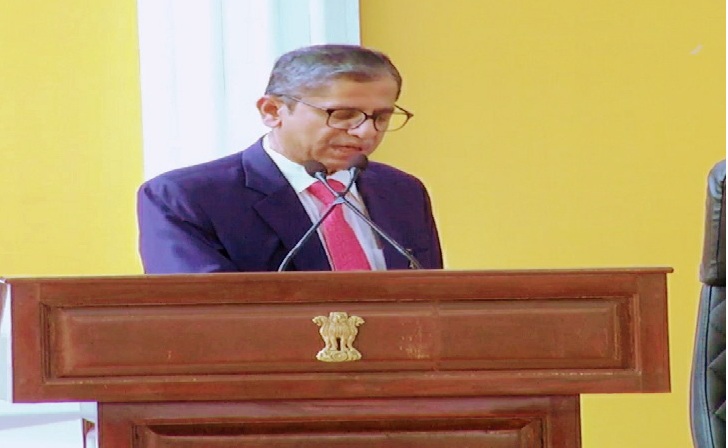- A three-judge bench headed by Justice Ramana decided on a batch of petitions challenging the restrictions imposed on internet services in Jammu & Kashmir after abrogation of Article 370. The bench had said that “access to the internet is a fundamental right by extension”.
- While delivering a judgment on a plea filed by Anuradha Bhasin, Executive Editor of Kashmir Times, who said that restrictions on communication services had resulted in the imposition of a de facto blockade on media activities, Justice Ramana emphasised the significance of the freedom of the press. He had said that “responsible governments are required to respect the freedom of the press at all times” and that “journalists are to be accommodated in reporting and there is no justification for allowing the sword of Damocles hanging over the press indefinitely”. Justice Ramana assured that civil liberties and rights guaranteed by the Constitution would certainly be protected by his Court. He also observed: “Freedom of speech and expression includes the right to disseminate information to as wide a section of the population as possible.”
- In the Karnataka Assembly case, his concern for the country and citizens was reflected when he observed that “horse-trading and corrupt practices associated with defection and change of loyalty for lure of office or for wrong reasons have not abated. Thereby the citizens are denied stable governments. In these circumstances, there is need to consider strengthening certain aspects, so that such undemocratic practices are discouraged and checked.”
- Justice Ramana was also part of the five-judge Constitution Bench which held that the office of the chief justice of India comes under the purview of the Right to Information Act.
- In a recent decision, a bench headed by Justice Ramana held that restriction against grant of bail in a stringent law like the Unlawful Activities (Prevention) Act, 1967 “per se does not oust the ability of constitutional courts to grant bail on grounds of violation of a fundamental right like the right to a speedy trial.” Justice Ramana further held: “Indeed, both, the restrictions under a statute, as well as the powers exercisable under Constitutional jurisdiction can be well harmonised. Whereas at commencement of proceedings, Courts are expected to appreciate the legislative policy against grant of bail, but the rigours of such provisions will melt down where there is no likelihood of trial being completed within a reasonable time and the period of incarceration already undergone has exceeded a substantial part of the prescribed sentence.”
- Another landmark judgment of Justice Ramana was a watershed moment in the battle for better rights for women. He highlighted the need to fix “notional income” for the non-earning homemaker. The judgment, while referring to the general recommendation adopted by the United Nations Committee on the Elimination of Discrimination Against Women on quantification of the unremunerated domestic activities of women, observed that these activities contribute in the development of every country and that fixing this income is a recognition of the multitude of women who are engaged in this activity. The reasoning assigned by Justice Ramana in this case is an assurance to all who believe in an equal and better world for all. Justice Ramana observed that fixing the notional income would signal to society at large that the law and the courts of the land believe in the value of the labour, services and sacrifices of homemakers.
Read the related articles: Justice NV Ramana: A leader with a heart
Justice Ramana’s route to top judicial post


